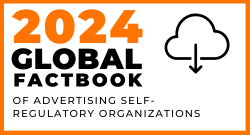What is Advertising Self-Regulation?
Advertising Self-Regulation or Ad Self-Regulation is a way for the advertising industry to actively regulates itself to ensure that advertisements are legal, decent, honest and truthful. Ads must be prepared with a due sense of responsibility to the consumer and society, with respect to the principles of fair competition.
The three parts of the industry – the advertisers who pay for the advertising, the advertising agencies responsible for its form and content, and the media that carry it – agree on standards for advertising and set up a system to ensure that advertisements that fail to meet those standards are quickly corrected or removed.
This is achieved by means of standards or principles of best practice, by which the advertising industry voluntarily agrees to be bound. These rules are enforced by a self-regulatory organisation (SRO) set up for the purpose and funded by the industry itself.
Self-Regulation and Legislation
Self-regulation is an alternative to detailed legislation, but not to all legislation. It is generally accepted that self-regulation works best within a legislative framework, and it is useful when the concept of self-regulation is formally recognised in framework legislation.
The two complement each other, like the frame and strings of a tennis racquet, to produce a result which neither could achieve on its own. The law lays down broad principles, e.g. that advertising should not be misleading, while self-regulatory codes, because of their greater flexibility and the fact that they are interpreted in spirit as well as to the letter, can deal quickly and efficiently with the detail of individual advertisements.

